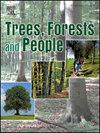以社区为基础的山地森林保护:模式、挑战和政策影响
IF 2.9
Q1 FORESTRY
引用次数: 0
摘要
高山森林受纬度、海拔和气候等因素的影响,具有多样的生态条件和物种组成。这些森林不仅对山区居民,而且对下游社区提供重要的生态系统服务,包括水调节、生物多样性保护和文化价值。当地社区与这些森林紧密相连,依靠它们获得资源、生计和身份。然而,气候变化、森林砍伐和政策差距日益威胁着生态完整性和传统习俗。本研究对1987年至2024年间发表的全球科学文献进行了全面的文献计量学和系统分析,重点研究了当地社区在保护高山森林中的作用、观念和影响。我们使用Web of Science和Scopus数据库进行了双阶段分析,确定了192篇文献计量学综述和422篇系统综合。研究结果分为四个主要研究领域:群落在保护中的作用、参与的实证影响、生物多样性联系和基于感知的研究。研究结果表明,大多数研究来自亚洲、非洲和拉丁美洲,重点关注参与式保护模式、文化生态系统服务和生态系统服务支付方案。报告还指出了性别不平等、治理复杂性和地方生态知识差距等挑战。通过定量和定性相结合的方法,本研究强调了社区保护如何增强生态和社会弹性。它为寻求在全球山区促进包容性、可持续森林管理实践的政策制定者、森林管理者和研究人员提供了宝贵的见解。本文章由计算机程序翻译,如有差异,请以英文原文为准。
Community-based conservation in mountain forests: Patterns, challenges, and policy implications
High mountain forests are characterized by diverse ecological conditions and species composition, shaped by latitude, altitude, and climatic factors. These forests provide essential ecosystem services—including water regulation, biodiversity conservation, and cultural value—not only to mountain populations but also to downstream communities. Local communities are deeply interconnected with these forests, depending on them for resources, livelihoods, and identity. However, climate change, deforestation, and policy gaps have increasingly threatened both ecological integrity and traditional practices.
This study provides a comprehensive bibliometric and systematic analysis of the global scientific literature published between 1987 and 2024, focusing on the roles, perceptions, and impacts of local communities in conserving high mountain forests. We conducted a dual-stage analysis using Web of Science and Scopus databases, identifying 192 publications for bibliometric review and 422 for systematic synthesis. The results were categorized into four main research areas: community roles in conservation, empirical impacts of engagement, biodiversity linkages, and perception-based studies.
Findings show that most research originates from Asia, Africa, and Latin America, with significant emphasis on participatory conservation models, cultural ecosystem services, and payment for ecosystem services schemes. Challenges such as gender inequality, governance complexity, and local ecological knowledge gaps were also identified.
By combining quantitative and qualitative methods, this study highlights how community-based conservation enhances both ecological and social resilience. It provides valuable insights for policymakers, forest managers, and researchers seeking to promote inclusive, sustainable forest management practices in mountain regions globally.
求助全文
通过发布文献求助,成功后即可免费获取论文全文。
去求助
来源期刊

Trees, Forests and People
Economics, Econometrics and Finance-Economics, Econometrics and Finance (miscellaneous)
CiteScore
4.30
自引率
7.40%
发文量
172
审稿时长
56 days
 求助内容:
求助内容: 应助结果提醒方式:
应助结果提醒方式:


